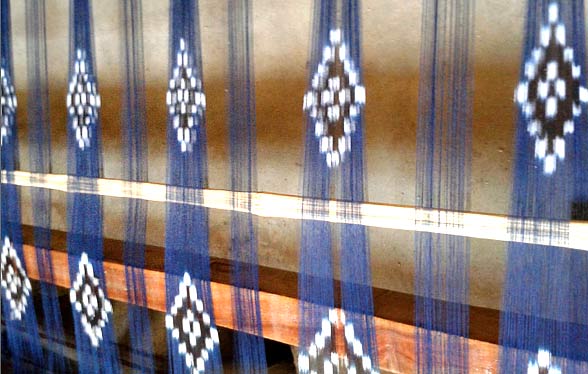Generation-old family tradition of cotton weaving still continues through a cooperative of pre-Independence era at Padmanabhpur village of Ganjam district in Odisha.
This is evident from the traditional charkhas and handlooms operational at households in this village. According to weaver families of this heritage crafts village, weaving as livelihood continues for over 200 years, yet it had got a fillip during Gandhian era of swadeshi and khadi.
On August 6, 1946, the Padmanabhpur Weavers’ Cooperative Society (PWCS) was established here. A social activist of that time S. Rameya, who also was local sarpanch and promoter of khadi, was major catalyst behind formation of this cooperative. The cooperative is still functioning.
Centuries back cotton cultivation continued in areas like Bhismagiri, Tikarpara, Nimakhandi etc adjoining Padmanabhpur, which started cotton weaving tradition at this village.
According to present secretary of PWCS, S. Nilakantha, at present 135 families of this village totally depend on handloom weaving of cotton saris. But he laments that there are several families at this village who have left their traditional profession.
Earlier Odia Patara families, who were the traditional weavers, as well as Telugu Devanga or Dera families of this village used to weave. Devangas were weavers who had migrated to Berhampur and its adjoining areas around 300 years back.
In Berhampur, Devangas are involved in silk weaving, while at Padmanabhpur they are involved in cotton weaving. With time Patara families of Padmanabhpur have left their traditional profession and opted for other means of income, while Devangas continue with weaving.
Despite educational degrees, persons like U. Janaki Rao continue to earn their livelihood from their traditional skill. They continue to use extreme traditional instruments for the weaving process like traditional charkhas of Gandhian era.
Dobby booti sari is a traditional specialty of this weavers’ village. At present saris produced by this cooperative are being marketed throughout the State as well as in New Delhi and Kolkata. Whole family of weavers gets involved in the process of weaving and one sari gets prepared in one day, said U. Vijaylaxmi and her husband U. Nageswar. For each sari, they get Rs.412 from the cooperative and in a month they are able to weave around 25 sari. So, some new generation youths from these weaver families are also thinking of leaving their profession.
Courtesy : The Hindu

